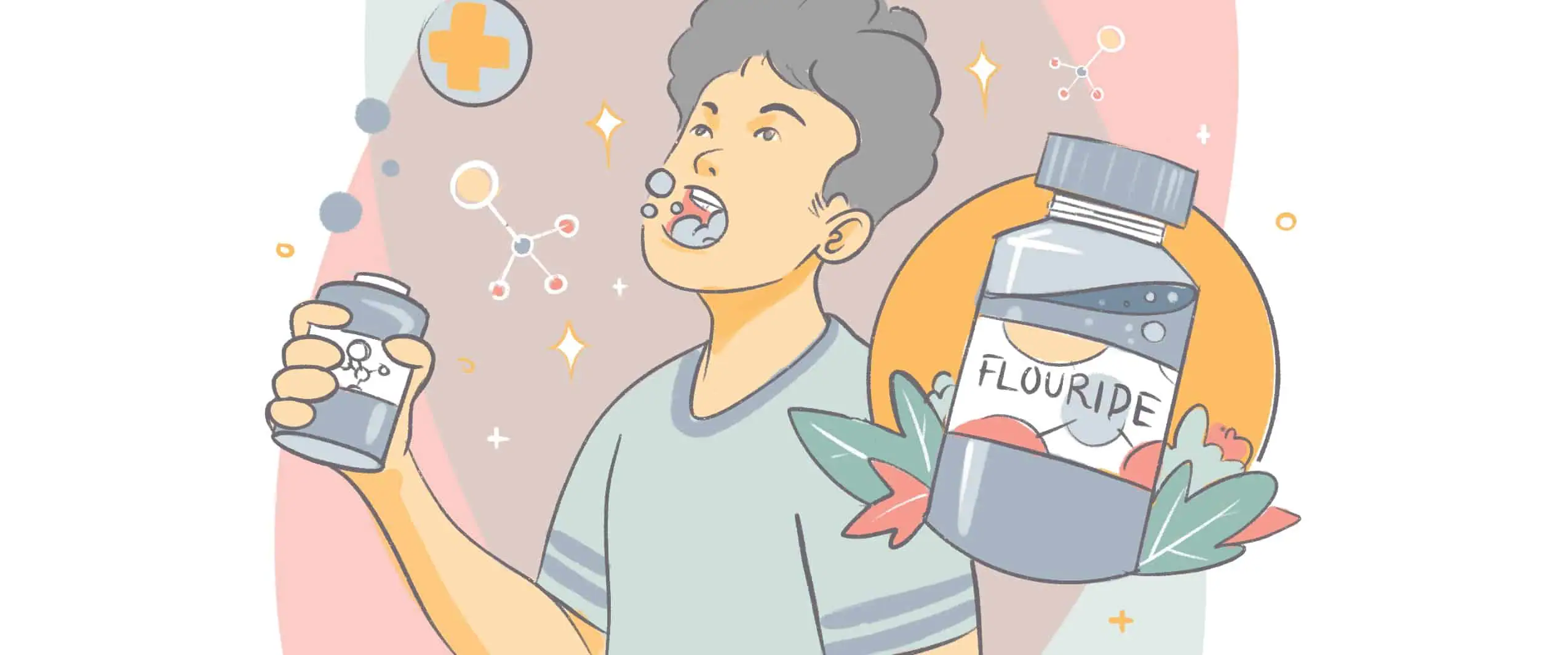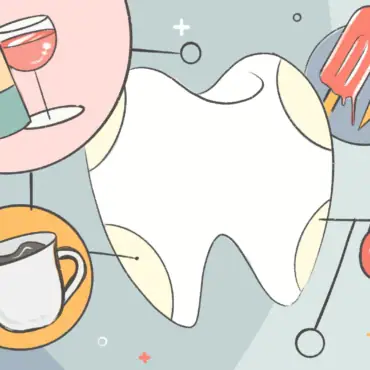The results of a recent study revealed that a little more than one-third of people don’t use mouthwash. Are you part of this group? If so, what’s holding you back from rinsing out your mouth on a regular basis? Do you not know which mouthwash to use? Are you overwhelmed by all the different choices out there? Let’s explore.
How to choose a mouthwash
Choosing a mouthwash can be a pretty daunting task. When you walk down the oral health aisle of the drugstore, there are tons of options to sift through. There are some initial considerations to think about for sure, however.
One is: be wary of claims that are being made on the label. If they claim to be the best or the most effective, you may want to question that. They might also claim to whiten your teeth by a certain number of shades or eliminate cavities.
Due for a checkup?
Find a top rated dentist near you that takes your insurance.
Be wary of claims like these. If something seems too good to be true, it most likely is. Don’t let flashy labels dupe you into buying mouthwashes that are more expensive than they need to be, especially if you’re working with a strict budget.
Another consideration is to look for an ADA (American Dental Association) seal. The American Dental Association certifies certain dental care products (toothbrushes, toothpaste, mouthwash, etc.) and gives them their seal of approval.
When you buy a product that features this seal, you can feel confident you’re buying something professionals have tested and deemed effective.
What do you want a mouthwash for?
When you’re shopping for a mouthwash, it’s also important to consider your unique dental needs. What are you hoping to get out of your mouthwash?
Bad breath
Do you find yourself breathing into your hand to check if your breath smells okay? If you worry about bad breath, rinsing with cosmetic mouthwash is a good option to consider.
Cosmetic mouthwashes don’t have many benefits outside of temporarily controlling bad breath and helping you freshen up. They won’t kill the bacteria that cause bad breath. However, they do work well when you’re in a pinch and don’t have time to brush your teeth before a big meeting.
Dry mouth
Certain medications, including antihistamines, antidepressants, and blood pressure medications, can cause dry mouth. The same is true of health conditions like diabetes and some autoimmune diseases.
Some mouthwashes can reduce the severity of this issue, as well as the side effects that can accompany it. If you have a chronically dry mouth, you might be more prone to bad breath. You might also be more likely to develop cavities and more serious issues like periodontal disease.
Oral health issues
Medicated mouthwashes are also known as therapeutic mouthwashes. They can help to relieve the symptoms of many oral health conditions.
The following are some of the most common issues therapeutic mouthwash can address:
- Plaque buildup
- Gum recession
- Gum inflammation (also known as gingivitis)
It’s important to note that mouthwash alone cannot combat these symptoms. You still need to brush and floss on a regular basis. When it’s combined with other good oral health practices, mouthwash can make a big difference.
Best ingredients in mouthwash
The following are some of the most effective ingredients to check for when you’re reading the labels on different bottles:
Fluoride
Of all the ingredients included in oral health products, fluoride is the one with which most people are familiar. It fights tooth decay. It also helps to strengthen the enamel of your teeth to prevent cavities from forming.
Cetylpyridinium chloride
If bad breath is your number one concern, look for a mouthwash that contains cetylpyridinium chloride.
This ingredient is responsible for eliminating bad breath. It doesn’t just cover up unpleasant smells. It actually kills the bacteria that cause bad breath in the first place.
Chlorhexidine
Chlorhexidine works to reduce plaque buildup. It also helps to control gum inflammation and prevent periodontal (gum) diseases like gingivitis.
Chlorhexidine is only available in prescription mouthwashes and dental products. The products you find in your local drugstore won’t contain it. They can still have significant effects, of course, but they won’t be as strong as what you can get from a pharmacy.
Peroxides
Carbamide peroxide and hydrogen peroxide both do a great job of whitening teeth. Do you worry about stains and discoloration? If so, a mouthwash that contains one of these ingredients will help to reduce their appearance and leave you with a pearly white smile.
Due for a checkup?
Find a top rated dentist near you that takes your insurance.
Alcohol
Many types of mouthwash contain alcohol (often in the form of ethanol). Alcohol helps to kill bacteria and dissolve the active ingredients in the product.
Most dentists agree that mouthwashes that contain alcohol are safe and effective. For those who have young children, though, it might be better to choose an alcohol-free option. Alcohol-free mouthwashes are ideal for those who struggle with dry mouth, too.
Essential oils
Some mouthwashes also contain essential oils like peppermint, eucalyptus, and thyme. These oils help to freshen the breath. They also have antibacterial and antifungal properties.
Is your primary goal cosmetic? Are you mainly interested in freshening up your breath? If so, a mouthwash that contains essential oils can be helpful and effective.
For those who have more serious dental health concerns, a mouthwash that also contains other, stronger ingredients will likely be a better pick.
Best mouthwashes
Sometimes, it helps to have a list of good products to consider. That way, you don’t have to worry about looking at every ingredient or reaching out to a dentist near you for help as you try to make a decision.
Here are eight highly effective types of mouthwash experts have tried and tested. These options will help you to see great results:
1. Crest Pro-Health Multi-Protection
Crest Pro-Health Multi-Protection has cetylpyridinium chloride as its main active ingredient. Because of this, it’s great for fighting bad breath and tooth decay. It also helps you to manage and prevent conditions like gingivitis and gum recession.
This mouthwash is alcohol-free, too. This makes it a good pick for those who have chronically dry mouths.
The only potential downside to Crest Pro-Health Multi-Protection is the fact that its active ingredient (cetylpyridinium chloride) may stain the teeth temporarily. With regular cleanings and careful brushing, though, you can avoid this issue.
Give $50, get $50.
Refer someone to book a dentist with Opencare and you’ll both get $50.
2. ACT Total Care Anticavity Fluoride
If you’re looking for the best mouthwash for gums, ACT Total Care Anticavity Fluoride is a good option to try.
This mouthwash is free from aluminum, parabens, and sulfates. It has fluoride as its active ingredient to prevent cavities and promote healthy gums.
ACT Total Care Anticavity Fluoride also comes in two varieties: one that contains alcohol and one that does not.
3. Crest Pro-Health Advanced with Extra Whitening
For those who value cavity prevention and teeth whitening, consider Crest Pro-Health Advanced with Extra Whitening.
This mouthwash is alcohol-free and also contains fluoride to fight off cavities. It whitens the teeth with the help of hydrogen peroxide, too. Some users have complained, though, that it takes a few months before the whitening effects start to show up.
4. ACT Dry Mouth
ACT Dry Mouth is an alcohol-free mouthwash that’s perfect for those with dry mouths. It can combat dryness for hours after you’ve used it. It contains fluoride, too, so it’s great for fighting cavities.
ACT Dry Mouth works so well because it contains xylitol. Xylitol increases saliva production. It also reduces the presence of the bacteria S. mutans, which contributes to plaque formation.
5. Peridex
If you need a prescription mouthwash, Peridex is a popular and effective choice. Peridex is a medicated mouthwash that contains chlorhexidine. It goes by several other brand names, including Perisol, Periogard, PerioChip, and Paroex.
This is a strong mouthwash and more expensive than some others on this list. If you suffer from gingivitis or other gum conditions, though, it’s an excellent option.
6. Listerine Cool Mint Antiseptic
Listerine Cool Mint Antiseptic combines an alcohol base with essential oils like peppermint, thyme, and eucalyptus. This combination makes it an effective mouthwash (many have called it the best mouthwash for receding gums).
Some people love the strength of this product and the tingle it creates. Others find that it’s too strong. However, if you’re looking for a mouthwash that helps to reduce plaque buildup, combat bad breath, and prevent gum recession, it’s a worthwhile choice.
7. CloSYS Ultra Sensitive
CloSYS Ultra Sensitive is one of the best picks for those with sensitive teeth and it’s alcohol-free. It combats bad breath with the help of chlorine dioxide, which helps to eliminate odor-causing bacteria in the mouth.
8. Tom’s of Maine Natural Wicked Fresh
If you’re on the hunt for a more natural mouthwash, consider giving Tom’s of Maine Natural Wicked Fresh a try.
This Tom’s of Maine mouthwash contains zinc to neutralize the odors caused by bacteria in the mouth. It’s also approved by the American Dental Association and doesn’t produce any kind of burning sensation. This makes it a great choice for those with sensitive teeth and gums.
Why should I use mouthwash?
At this point, you’re better informed about mouthwash and what goes into a great product. You might also be wondering whether or not mouthwash is right for you, specifically. Maybe you don’t struggle with bad breath, dry mouth, or oral health problems like cavities or plaque buildup. Can you still benefit from adding mouthwash to your routine?
The truth is that just about everyone can incorporate mouthwash into their oral care routine and see results. Mouthwash helps to keep your teeth and gums healthy. That way, you don’t have to deal with issues like bad breath, gingivitis, or plaque buildup.
Mouthwash also helps you to get into areas of your mouth that you might miss while brushing or flossing. When you rinse with it regularly, you can easily clean out some of the hard-to-reach places. As a result, you can ensure you’re setting up your teeth and gums for long-term health until your next dentist appointment.
Do you need more help with improving your dental health? If so, we’re here to help. Find a dentist in your area who meets your needs.








